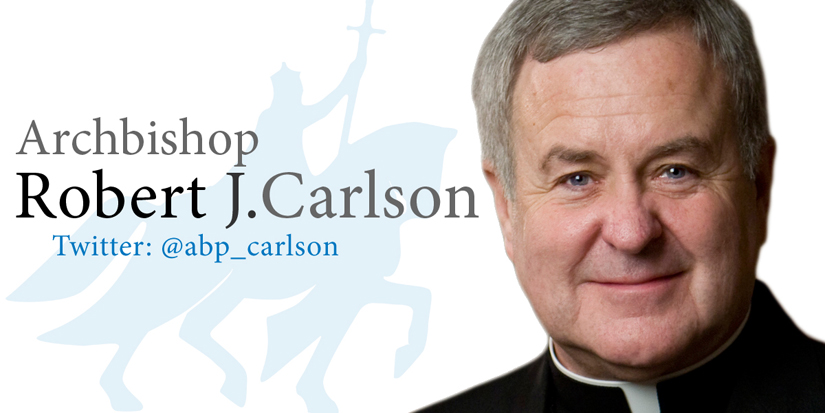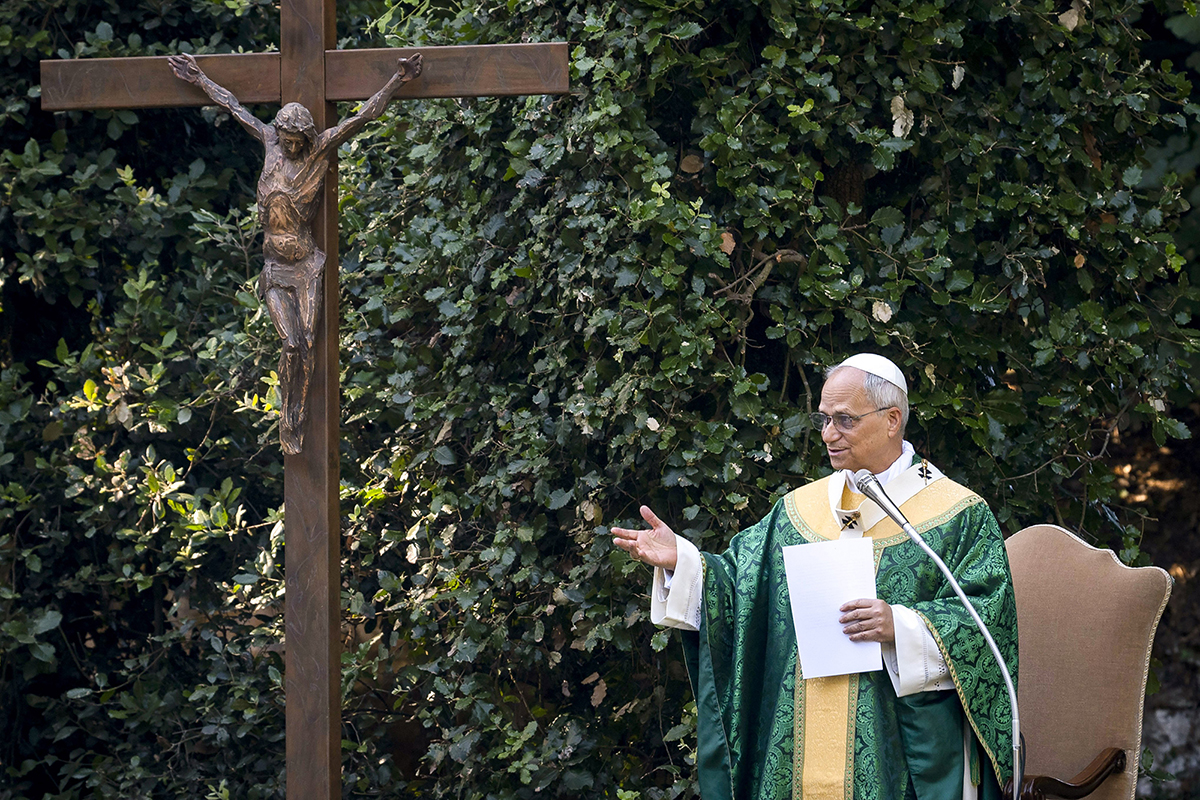BEFORE THE CROSS | Bible stories become the pattern of our lives

Appropriate use of time, connection between suffering and flourishing
let our lives tell story of God’s people
A recent investigation showed that the average 18-33 year old checks his or her phone 85 times a day. The total investment of time adds up to 5 hours.
Rather than pointing a finger at young adults, this should raise questions for all of us: How do we spend our time and energy each day — and is there a better way?
In the Gospel on Monday, Jesus says: “Whoever loves father or mother or son or daughter more than me is not worthy of me.” By extension, we can ask: how much time and energy do I spend watching television (and talking to people about it), listening to talk radio (and getting worked up about it), posting on Facebook, or following my fantasy baseball team? Would some of that time and energy be better spent; and what would it mean to make my time and energy worthy of Jesus?
Jesus provides another angle into the question when He says: “Come to me, all you who labor and are burdened, and I will give you rest. Take my yoke upon you … for my yoke is easy and my burden light.”
When we talk to others about the weather, politics or the latest news is the yoke of that attention light or heavy. That is, does it leave everyone more refreshed and energized, or more care-worn and burdened? Let’s think about what occupies our time and energy, and whether it gives life or drains it away. If we do so, we might discover an invitation from Jesus to put our time, energy and attention under a new yoke.
The cross
We begin a series of readings this week about the Exodus. At each turn the law of the cross — the connection between suffering and flourishing, between dying and rising — is illuminated.
The Egyptians begin to oppress the Israelites; each act of oppression brings greater flourishing to Israel. Pharaoh orders the death of every male child born to Israel, which results in Moses being raised in Pharaoh’s own family. God gives His name to Moses. Since the ancient Hebrews thought that knowing someone’s name gave you power over them, this was a tremendous act of vulnerability: God gave Himself into the hands of His people. Finally, at the Passover, Israel eats the flesh of the lamb whose blood will save them from the angel of death. Each episode foreshadows the cross in some way.
The cross also is echoed in the history of the Church. Every persecution that makes the Church flourish and every martyrdom that draws others to the life of faith show us the law of the cross in action.
Every suffering in our own lives, too, is an invitation from Jesus to make our lives an echo of his. We can say: “Father, I don’t understand this. But I offer it to you. Please make my suffering fruitful for something, for someone, somewhere.”
Time and the cross. The things we hear about in the Bible aren’t just words and deeds from long ago. They can become the pattern of our lives. As they do so, our lives become part of the story of God’s people.
RELATED ARTICLE(S):FRENTE A LA CRUZ | Las historias de la biblia pueden convertirse en el modelo de nuestras vidas
Appropriate use of time, connection between suffering and flourishing let our lives tell story of God’s people A recent investigation showed that the average 18-33 year old checks his or … BEFORE THE CROSS | Bible stories become the pattern of our lives
Subscribe to Read All St. Louis Review Stories
All readers receive 5 stories to read free per month. After that, readers will need to be logged in.
If you are currently receive the St. Louis Review at your home or office, please send your name and address (and subscriber id if you know it) to subscriptions@stlouisreview.com to get your login information.
If you are not currently a subscriber to the St. Louis Review, please contact subscriptions@stlouisreview.com for information on how to subscribe.




